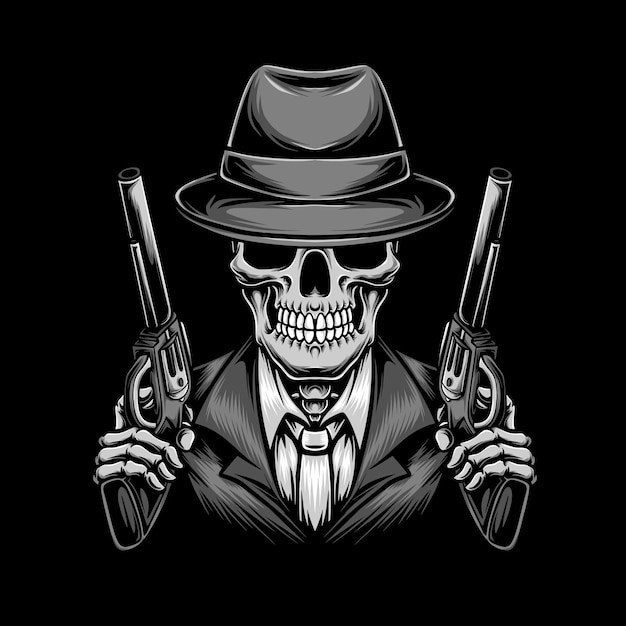The Corporate Kingpin: Architect of Organizational Chaos
The Corporate Kingpin: Architect of Organizational Chaos
In the realm of corporate culture, a dark underbelly exists, obscured from the glossy façade of success and innovation—the world of corporate gangs led by what I term as the "Corporate Kingpin." Unlike the traditional mob boss, the Corporate Kingpin operates within the boardrooms, manipulating power dynamics, and creating an environment akin to organized crime within the corporate structure.
A corporate gang, in this context, refers to a group of individuals within an organization who are favored and protected by the Corporate Kingpin. These individuals often enjoy special privileges, promotions, and immunity from consequences and accountability, creating an exclusive enclave that operates outside the established rules and norms. No process can challenge them or stop them from acting on their whims and psycopthic agenda. Their disrespect goes unaddressed, their rudeness unchecked, their lies are heard instead of others' truth, their value is projected high despite of their lack of skill and empathy, their victims are punished in the harshest of ways and the Kingpin joins their celebrations.
The Corporate Kingpin, much like a mafia leader, carefully selects and nurtures these gangs. Favors are distributed both ways, allegiances are formed, and the gang members become loyal foot soldiers in the kingpin's grand design. This exclusive network is not just a group of colleagues but a formidable force that the kingpin can deploy strategically in own favour or against the ones they dislike.
The corporate gang serves as a weapon in the kingpin's arsenal, a tool used against those who dare challenge or oppose their reign. Dissenters, whistleblowers, or anyone perceived as a threat to the kingpin's authority become targets. The gang is unleashed to intimidate, marginalize, and, if necessary, eliminate by scapegoating these perceived adversaries.
The fear instilled by these gangs is not limited to the workplace; it permeates every aspect of an employee's life. Careers are sabotaged, mental health is compromised, families are strained, and livelihoods are jeopardized. The once-promising corporate environment transforms into a breeding ground for anxiety, stress, and a pervasive sense of injustice. A once-blossoming garden of learning, accountability, mutual respect and performance is scorched into an abyssmal prison of distrust, fear, dirty politics, cruelty, and apathy, littered with corporate spies, cameras, gang members, and a sense of suffocation.
The gang culture orchestrated by the Corporate Kingpin leaves a trail of collateral damage in its wake. Competent employees are stifled, their growth hindered by an impenetrable wall of favoritism. The corrosive impact extends beyond professional realms, affecting personal lives as relationships wither under the strain of a toxic work environment.
However, the irony lies in the eventual fate of these corporate gangs. Like any well-crafted tragedy, the seeds of destruction are sown within the very fabric of the organization. The loyalty that the kingpin expects is often tenuous, built on self-interest and a shared goal of self-preservation. As the kingpin's machinations become increasingly detrimental to the organization, dissent brews within the once-loyal gangs.
The same weapon that the kingpin wielded against others is inevitably turned inward. The gangs, now sensing the instability and dysfunction created by their own actions, become a force that destabilizes the organization. Infighting, power struggles, and a complete breakdown of trust ensue. The very gangs that were once a symbol of the kingpin's control become agents of chaos, leading to the downfall of the organization they were meant to serve.
In the annals of corporate history, the rise and fall of organizations led by Corporate Kingpins and their gangs serve as cautionary tales. The scars left on individuals and the organizational fabric persist long after the kingpin's reign has ended. It underscores the importance of ethical leadership, transparency, and a commitment to fostering a healthy work culture—a culture that thrives not on fear and favoritism but on merit, collaboration, and genuine leadership. As organizations navigate the complexities of the corporate world, the shadow of the Corporate Kingpin serves as a stark reminder of the pitfalls that await those who prioritize power over principles.
The Kingpins might divert their attacks on people who expose them or who are defenceless or too kind to reciprocate, but eventually, the fortress of deceit, cruelty, and depravity crumbles against the same malevolent forces it once contained.
Let this lesson be learnt,
The cruel are lost or burnt
Their wings of wax might soar
Their end will come to fore
When burn their wretched wings will
With a thousand shining suns' will
They'll beg for mercy of our
They'll seek love instead of power - SO




Comments
Post a Comment